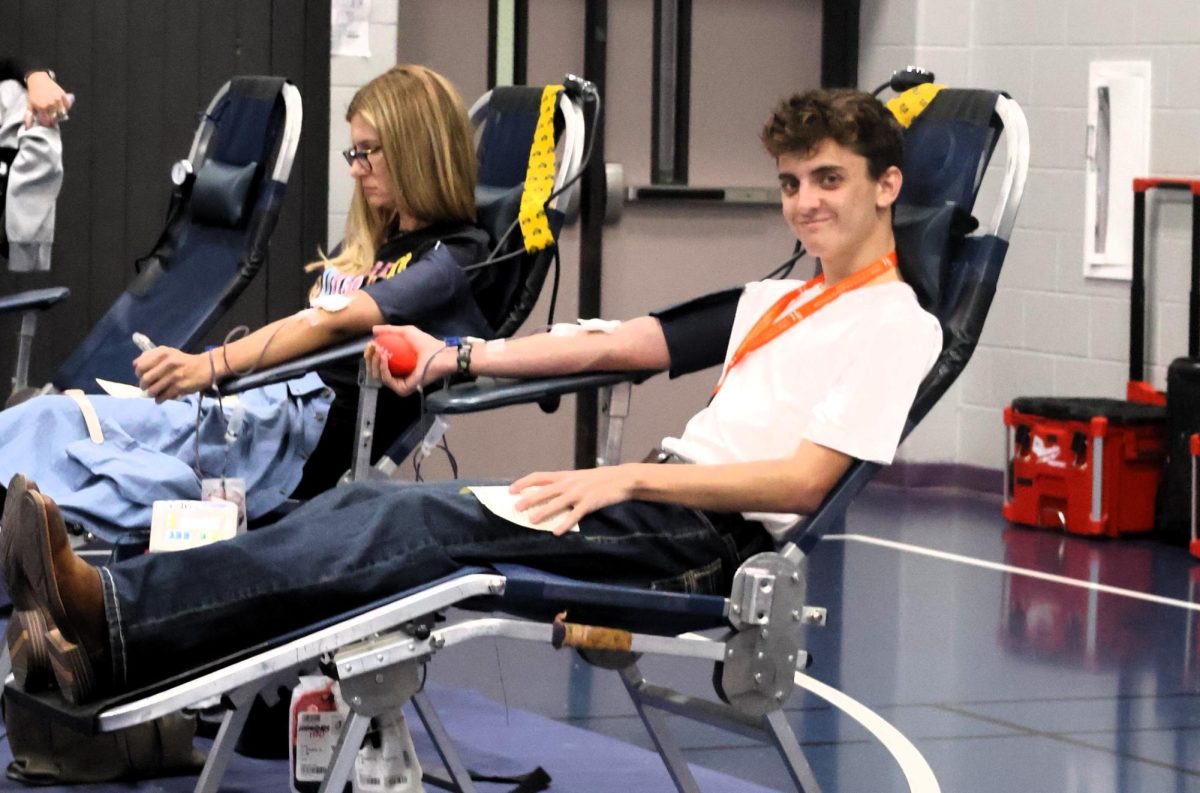When students pick their courses for the next school year, they are faced with a decision. The general level classes are on-track classes that are required to graduate. Some students notice something new, in place of PRE-AP and honors courses: AP and DC courses. AP means advanced placement, and DC means dual credit. A student may choose a DC or an AP class to improve their knowledge and even prepare themselves for college.
The big question is which class should students take.
“Choosing between AP and DC is a personal choice related to each student’s post-secondary goals. Any student at WHS is welcome to take any AP or DC course as long as they meet the course prerequisites or requirements, and are prepared to put in the extra time and effort required of any AP or DC course. ” Advanced Academics Case Manager Amy Rogers said. “I would try at least one AP or DC course for any student who thinks they might be college-bound in the future because while taking these more rigorous courses while in high school, you have a more supportive net and smaller class size than you would at many colleges and universities.”
After reading that, there might be some confusion about which course students should enroll in.
“I recommend DC given our student population and where most students will go to college. All state schools must take the DC credits,” DC coordinator Christina Henderson said. “For AP, we are teaching to the test, and students must pass, usually with a 4 or 5, to receive college credit. It is high stakes and a lot of pressure, and students often will not know if it even counts towards college credit until they sit down with their college advisors.”
Students in AP courses had to adjust to the new course environment but felt it was worth the stress.
“I chose AP because I did not pass the TSI,” junior Cristal Perez said. “While it was not intentional, this put me in AP and made me work hard. The difference between honors and AP took me a little bit to adjust but I got the hang of it and I do not regret it.”
The benefits of the courses do not come without some time and hard work.
“Being in those courses requires extra commitment,” Rogers said. “So students often learn valuable skills that will make them successful in the future, like time management, study skills, organization, what to do when you struggle, and how to ask for help.”
While these courses teach life skills, students feel like there are course options that are more difficult than others.
“I take one AP class and three DC classes,” junior Cesar Barrera said. “I feel like AP is harder, but it is how I would imagine college to be. The AP test is approaching soon so it is time for me to begin studying, just as I would for finals.”
While it is currently March, AP exams are in May, and taking an AP test is different from the STAAR test.
“The AP exam is just an end-of-course exam, like STAAR or finals, but on a deeper level,” Rogers said. “Students are tasked not only with learning the content but also how to read, write, analyze, argue, and defend their thoughts about that content.”
Regardless of the course type, the course options provided by the school district are amazing and students should take advantage of the opportunity for a cheaper course at easier times. Henderson, whose son Reid graduated last year as the 2023 valedictorian knows the benefit of dual credit classes on a personal level.
“Although Reid is only in his second semester of college, he is classified as a junior now,” Henderson said. “He graduated with 56 DC credits, and The University of Texas at Austin took all of them. If he chooses, he can graduate next May (2025) or he can double major or add other minors/certificates. If he graduates early, we save two years of tuition and housing at UT, which is about 28k, so we are saving over $55,000.”
As AP courses have a wide variety of course choices, there are no restrictions to enrolling in AP courses.
“Anyone may take any AP courses or exam and the school district expectation is that all AP course students take their corresponding exams,” Rogers said. “The only way to earn college credit from an AP course is to sit for the exam and get a qualifying score which varies by course and college or university you want to use it at.”
With guaranteed college credit, as long as the class is passed, students may be wondering – “how do I enroll in DC courses?”
“The indicator of success in the DC program is passing the TSI( E-945; Essay-5; Math-950) – especially since there is an essay, and DC students will write a lot. Passing PSAT scores (E-460; Math-510) will also qualify them,” Henderson said. “SAT scores (although often not taken until the late junior year (E-480; Math – 530) will also qualify. Last resort – passing all 4 STAAR tests (E1, E2, Biol, and Alg 1) – must be 4000 or above on all 4 sections. We can piecemeal the different tests – (e.g., take a passing score from English TSI and pass PSAT on the Math).”
Though the courses may seem scarier, they are easier than they seem as time passes.
“Don’t be anxious about the courses,” Henderson said. “The rigor and expectations are higher in DC/AP than they ever have been, but we work with students who want to push themselves and want to be successful. It may be hard at first, but it will even out, and the classes become a routine. They will enjoy learning and will be more prepared than other students for the next steps after high school. Students cannot give up on themselves even though it may be uncomfortable at first.”












